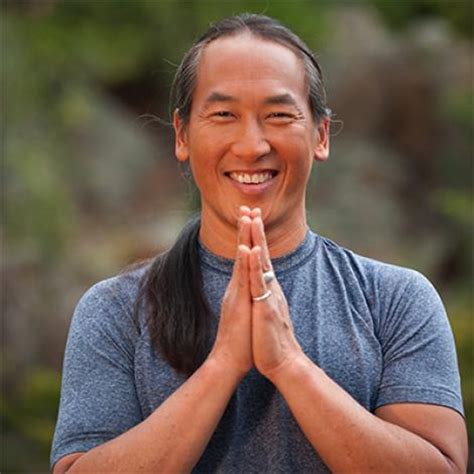A Quote by Nhat Hanh
Listening is a very deep practice. You have to empty yourself. You have to leave space in order to listen especially to people we think are our enemies - the ones we believe are making our situation worse. When you have shown your capacity for listening and understanding, the other person will begin to listen to you, and you have a change to tell him or her of your pain, and it's your turn to be healed. This is the practice of peace.
Related Quotes
Become better listeners. Practice the art of listening in everything you do. Not just listening to yourself and your body, but listening to the people around you, listening to the plant world, the animal world. Really open your ears to what's coming at you. From there, see if you can have the ability to respond instead of react. And that usually comes with listening. If the observation and the listening are deep, then your action will be deep also.
When listening to another person, don't just listen with your mind, listen with your whole body. Feel the energy field of your inner body as you listen.That takes attention away from thinking and creates a still space that enables you to truly listen without the mind interfering. You are giving the other person space-space to be. It is the most precious gift you can give.
Deep listening is the kind of listening that can help relieve the suffering of another person. You can call it compassionate listening. You listen with only one purpose: to help him or her to empty his heart. Even if he says things that are full of wrong perceptions, full of bitterness, you are still capable of continuing to listen with compassion. Because you know that listening like that, you give that person a chance to suffer less.
The secret is to listen, open your mind, listen to the pros. With the help of the UFC's Performance Institute, too. Listening to my coaches and listening to my body, too. Having discipline. It's not just listening, too, because sometimes people have the knowledge but don't know how to use it. You need to be able to put that to practice.
'In empathic listening you listen with your ears, but you also, and more importantly, listen with you eyes and with your heart. You listen for feeling, for meaning. You listen for behaviour. You use your right brain as well as your left. You sense, you intuit, you feel.' ... 'You have to open yourself up to be influenced'.
Make your will one! Don't listen with your ears, listen with your mind. No, don't listen with your mind, but listen with your spirit. Listening stops with the ears, the mind stops with recognition, but spirit is empty- and waits on all things. The Way gathers in emptiness alone. Emptiness is the fasting of the mind.
Listening is totally different from hearing. Hearing, anybody who is not deaf can do. Listening is a rare art, one of the last arts. Listening means not only hearing with the ears but hearing from the heart, in utter silence, in absolute peace, with no resistance. One has to be vulnerable to listen, and one has to be in deep love to listen. One has to be in utter surrender to listen.
We should all know this: that listening is not talking; [it] is the gifted and great role and the imaginative role. And the true listener is much more beloved, magnetic than the talker, and he is more effective, and learns more and does more good. And so try listening. Listen to your wife, your husband, your father, your mother, your children, your friends; to those who love you and those who don't, to those who bore you, to your enemies. It will work a small miracle. And perhaps a great one.
Listening is more than being quiet. Listening is much more than silence. Listening requires undivided attention. The time to listen is when someone needs to be heard. The time to deal with a person with a problem is when he has the problem. The time to listen is the time when our interest and love are vital to the one who seeks our ear, our heart, our help, and our empathy.


























